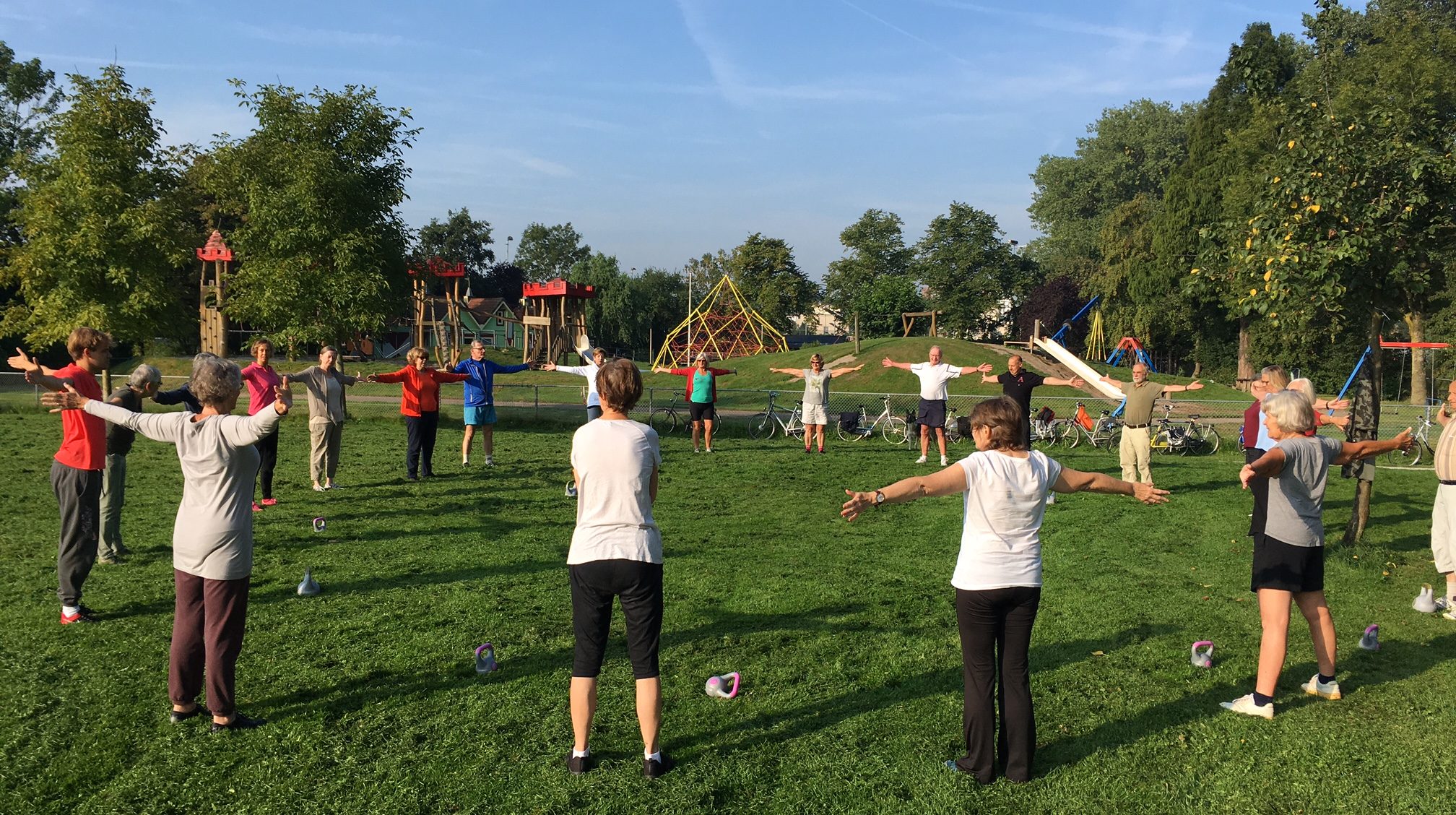Leiden, The Netherlands, 17 December 2020 – In the Vitality Club, older neighbors exercise together and coach each other. A successful approach: the participants keep coming back and feel physically and mentally healthier. But can you help set up these kinds of clubs in every neighborhood, and let them go once the group is on its own two feet? Research from Leyden Academy on Vitality and Aging shows that this is possible. The researchers publish their findings in the December issue of the scientific journal Preventive Medicine Reports.
Three exercise clubs set up
Previous research found that the Vitality Club is an effective and promising intervention: after all, it is relatively cheap (no professionals involved) and scalable (it should be possible in every neighborhood). The first exercise club that was investigated in small village of Ulft, was founded by the elderly themselves. But can you, as a policymaker or care and welfare professional, help set up a Vitality Club yourself? As an experiment, researchers from Leyden Academy have set up Vitality Clubs in three neighborhoods in the city of Leiden and guided them in the set-up phase: in Leiden Noord (since October 2016), the Professoren- en Burgemeesterswijk (August 2017) and Stevenshof (November 2017). The researchers followed the three clubs, described how they were set up, and which elements work and which do not.
On its own two feet
Three fully independent Vitality Clubs are now running in Leiden’s neighborhoods, where dozens of elderly people coach each other every weekday and exercise together. In this study, too, the participants’ fitness appears to have improved and they indicate that they experience a higher quality of life. The researchers’ investment in guiding these Vitality Clubs in the initial phase was relatively small: 81 to 187 hours for start-up support, and an average of 170 euros for sports equipment. After 114 to 263 days, the group was on its own two feet.
Huge potential
According to David van Bodegom, researcher at Leyden Academy and professor of Vitality at the Leiden University Medical Center, the Vitality Clubs offer a huge potential for society: “Sufficient exercise is important, especially for older people, given the risk of conditions such as arthritis, high blood pressure and diabetes. Yet few people in the Netherlands manage this active lifestyle. Our previous finding that participants of the Vitality Club are able to keep exercising together, was great news. But we, as a society, cannot afford to sit back and wait for these clubs to be set up spontaneously. We believe every neighborhood in the Netherlands should have a Vitality Club. Our research aimed to see if we can lend the clubs a hand – and let them go as soon as they are viable. That turns out to work well.”
About the Vitality Club
The Vitality Club is an exercise club for and by seniors. Participants exercise outside together on weekdays, with training provided by peer coaches: people from their own group who voluntarily act as a trainer. Participants do not have a subscription, they join when they feel like it. There are now 17 Vitality Clubs active in the Netherlands.
The article Self-organizing peer coach groups to increase daily physical activity in community dwelling older adults by Paul van de Vijver, Frank Schalkwijk, Mattijs Numans, Joris Slaets, and David van Bodegom is published in December 2020 in scientific journal Preventive Medicine Reports.
For more information, please contact Niels Bartels, Manager Communications, via email.



